An orphaned sector
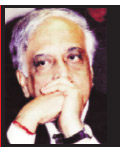 Hari Jaisingh
Hari Jaisingh
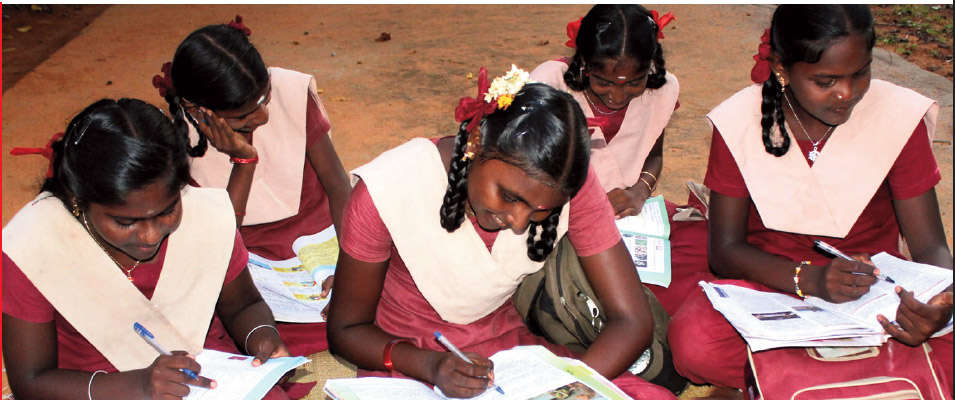
Whither India's
Education? This
question has
been debated in
the country's
various fora, in
Parliament and academic circles
for years. Still, big gaps remain
between official efforts-cumclaims
and the people's rising
expectations for quality education
in primary and secondary schools
in urban and rural areas.
True, India needs more IITs and
IIMs. It also needs more and more
quality schools which could feed
these institutions of high learning.
If this aspect of high standards of
schooling is ignored, as is the
existing reality, we will see more
Kota-like centres where students
end up as wrecks mid-way
through their preparations for
higher studies and skills
development.
As it is, the country suffers from
a major shortfall in skilling which
cannot be made up with the
much-trumped official
programme of "Skill India". This
harsh fact has serious
repercussions for the country's
At the entrance gate of a
university in South Africa the
following message was posted
for contemplation:
*"Destroying any nation does not
require the use of atomic bombs
or the use of long range
missiles. _It only requires
lowering the quality of education
and allowing cheating in the
examinations by the students._"*
Patients die at the hands of such
doctors.
Buildings collapse at the hands
of such engineers.
Money is lost at the hands of
such economists & accountants.
Humanity dies at the hands of
such religious scholars.
Justice is lost at the hands of
such judges...
*"The collapse of education is
the collapse of the nation."*
economy and society in view of
the fact of over a million youth get
set to join the work force every
month.
However, looking at the poor
standards of education, will they
be employable? An honest answer
will be: No. What, in that case, will
be the future of these youngsters?
Will they not become part of the
growing ranks of destructive
forces which have, of late, been
increasingly used in the country's
trouble-prone sensitive areas by
the vested interests for political,
communal and sectarian
purposes? Herein lies the
country's tragedy.
The real problem confronting
government schools is shortage
of teachers and classrooms. The
concept of guest teachers and
contract teachers has devalued
teaching. "Operation
Blackboard" was conceived just
as a temporary measure to
ensure at least one blackboard
and one teacher at every rural
school. But this has come to
stay, with most state
governments regularly slashing
at school education budget, leaving the doors open for the
privatization of schools over the
years, to the disadvantage of
the poor and the have-nots.
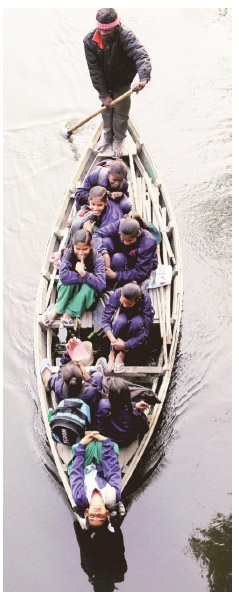 There is, of course, no magic
wand for skills development of
students and good results. For this
purpose, teaching has to be made
a worthwhile profession.
Attractive pay packet and
incentives alone can attract right
persons to the teaching
profession.
There is, of course, no magic
wand for skills development of
students and good results. For this
purpose, teaching has to be made
a worthwhile profession.
Attractive pay packet and
incentives alone can attract right
persons to the teaching
profession.
Indeed, it is time to reinvent
the wheel if India is to march
with its head held high at global
high-profile Davos-like
gatherings. To put the matter
simply, the government, the
bureaucracy and educationists
have to be sensitive to the
needs of the rural and urban
parents and respond to their
craving for quality education
and skills development with
out-of-box thinking if our young
people are to compete
competently in today's
globalised world.
It is a pity that education, along
with public health system,
continues to be the orphan in
India's social sector. This must
change if India's dream to become
a big power has to turn into a
reality.
Near-universal enrollment and
automatic promotion through the
elementary stage have resulted in
more and more children
successfully completing
elementary schooling. But What
about their learning skills and
standards ? We need to closely
watch the quality of schooling
both in rural and urban areas.
Year after year since 2005, the
Annual Status of Education (ASER)
has highlighted the fact that many
children (age group 5 to 16) are
not acquiring even foundational
skills like reading and basic maths
that can make them go up in
schools and life.
The latest 2017 ASER report for
rural India has looked "beyond
basics". It confirms harsh realities
The latest 2017 ASER
report for rural India
confirms harsh realities
about the poor state of
education. It clearly
states that school
education is failing the
majority of our 14 to 18
year olds. The report is
is based on the survey
carried out in 28
districts across 24
states.
about the poor state of education.
It clearly states that school
education is failing the majority of
our 14 to 18 year olds. The report
is quite comprehensive since it is
based on the survey carried out in
28 districts across 24 states. Its
focus is on 14-18 year old
students who are part of the first
batch to pass after
implementation of the Right to
Education Act. Let me restate
certain facts of the findings of the
survey.
One, 14 per cent of the
students could not identify the
map of India.
Two, 36 per cent of the
students could not name the
capital of India.
Three, one-fourth of the
students could not read their
own language fluently.
Four, 57 per cent of them
were found struggling to solve a
simple sum of division.
The moot point is: why this
dismal show? The 2012 ASER
report candidly pointed out that
the decline in school education
standards had been "more
noticeable since 2010, when the
RTE Act came into effect. This
means that with targets of blanket
coverage under the RTE, the
quality and standards of schooling
are being compromised. This is a
typical example of the
governments' misplaced numbers
game to claim success in the name
of Right to Education.
The 2012 report has also noted
that the private sector "is making
huge inroads into education in
rural India". And, by 2019, when
the RTE would have done a
decade, the private sector "will be
the majority service provider".
Besides, the private sector
involvement "will also be
strengthened by 25 per cent quota
of the government under the RTE
Act.
Ironically, the highest private
sector enrollment is said to be in
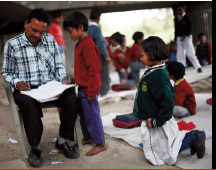 Kerala, where the successive
governments have claimed
commitment to welfare policies,
especially on education and
health.
Kerala, where the successive
governments have claimed
commitment to welfare policies,
especially on education and
health.
The private sector, apparently,
is exploiting the poor quality of
government schools to its
commercial advantage. Not that
the private sector schools are role
models. Even their low standards
remain low. They have also
reportedly "shown a downturn in
maths beyond number
recognition", as Firstpost report
underlines.
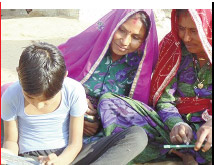 Against this backdrop, it will be
worthwhile to look at the plight of
rural parents. They pay higher
fees for private schools. They also
spend considerable sum for
private tuitions. Poor families
actually spend their hard-earned
money to get "half-baked
education" for their children.
The 2012 ASER report states:
"There has been a feeling that RTE
may have led to relaxation of
classroom teaching since all
exams and assessments are
scrapped and no child is to be
kept back. "Continuous
Comprehensive Evaluation (CCE) is
now part of the law and several
states are attempting to
implement some form of CCE as
they understand it".
Against this backdrop, it will be
worthwhile to look at the plight of
rural parents. They pay higher
fees for private schools. They also
spend considerable sum for
private tuitions. Poor families
actually spend their hard-earned
money to get "half-baked
education" for their children.
The 2012 ASER report states:
"There has been a feeling that RTE
may have led to relaxation of
classroom teaching since all
exams and assessments are
scrapped and no child is to be
kept back. "Continuous
Comprehensive Evaluation (CCE) is
now part of the law and several
states are attempting to
implement some form of CCE as
they understand it".
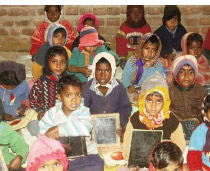 Looking at the magnitude of the
problem, it will not be easy to find
quick solutions for teachinglearning
of "basic foundational
skills" at the primary level.
We are, indeed, faced with a
serious national crisis in
learning. The quality of
education and the performance
of students in government and
private schools will have to be
improved through coordinated
efforts of governments,
teachers and school
managements at all levels.
As it is, higher education has
already been sold to those with
money patronage power. Should
Looking at the magnitude of the
problem, it will not be easy to find
quick solutions for teachinglearning
of "basic foundational
skills" at the primary level.
We are, indeed, faced with a
serious national crisis in
learning. The quality of
education and the performance
of students in government and
private schools will have to be
improved through coordinated
efforts of governments,
teachers and school
managements at all levels.
As it is, higher education has
already been sold to those with
money patronage power. Should
Rewriting textbooks to
inject the 'reigning
political flavour" of the
day, howsoever
justifiable, cannot raise
the standards and
quality of education.
Quality education
demands quality
teachers, modern
instruments of teaching
and learning, rigorous
enforcement of quality
standards, better
management and
objective assessment of
performance of urban
and rural schools
primary school education also be
allowed to go the same way?
Educationists and the authorities
at the Centre and in the States
ought to give a serious thought to
various facets of the illness that
India's education system is
suffering from.
More than the Right to
Education, what the country
needs badly is the Right to
Quality Education. Our leaders
invariably settle for the easy
route of the numbers game to
flaunt their "success" instead
of addressing themselves to
serious issues of ensuring high
teaching-learning standards
with the requisite
infrastructure backup and
budgetary provisions. At stake
is the future of
India and the Generation Next.
We need to learn from China's
big money allocation to education
which, in turn, has ensured its
impressive leap-forward in the
economy and power status in the
comity of nations. Beijing spends
big money on education.
Rewriting textbooks to inject
the 'reigning political flavour" of
the day, howsoever justifiable,
cannot raise the standards and
quality of education. Quality
education demands quality
teachers, modern instruments of
teaching and learning, rigorous
enforcement of quality standards,
better management and objective
assessment of performance of
urban and rural schools by
genuine educationists, and not by
politically-sponsored-persons.
Quality education and
healthcare can take the country
to dizzy heights of productivity
and prosperity. Hollow
promises and tall claims by our
leaders would not do.
Is this a tall order ? The young
generation deserves a better
deal. We cannot afford to
create a vast army of frustrated
educated youth.




 Hari Jaisingh
Hari Jaisingh



